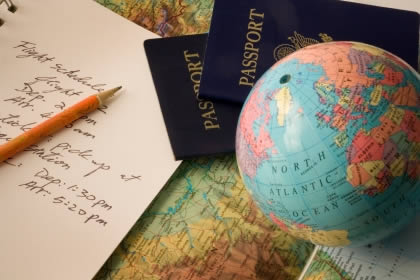With the Soccer World Cup coming to the African continent for the first time, South Africa is going to get soccer fans at home and abroad moving and grooving to the Diski Dance!
This dance was inspired by the way that soccer is played in Africa taking bits and pieces from street soccer that kids play and incorporating some interesting, uniquely African dance styles.
Diski dancing is something that everyone is encouraged to learn before heading to South Africa for the World Cup and various adverts are being played internationally on TV networks including CNN, BBC, Skysport, and Eurosport so that everyone can learn the moves. If you learn it well enough you should think about jobs in dance when you return home!
The passionate spirit of the entire Africa continent will exude with Diski dancing and it is expected that Diski dancing will be done during the opening ceremony, at matches, at the fan parks, and even in the streets. The rhythm of the African people is something that visitors will not forget any time soon, and as the advert slogan says, “Come and feel it!”
Where there is dancing, one has to have music, and one of the iconic South African instruments representing soccer is the vuvuzela. This trumpet like instrument is one of the unique items that South African soccer fans want to share with the rest of the world. You can get them just about anywhere – at the stadiums, from shops and convenient stores, service stations, and of course from the local street vendors. The vuvuzela is also called a lepatata and is about a meter in length, usually made from plastic. The origin of these instruments is disputed, but it is believed that it stems from African heritage where kudu horns were blown to call tribes to meet. Other folklore attached to it is that the noise kills the enemies, which is why they are blown frantically at the end of a game.
In 2007 Capetonian, Adam Carnegie started making vuvuzelas out of kelp. He never dreamed that one day his environmentally friendly idea would be such a big hit. It is being supported by the Western Cape provincial government and will be promoted as an economical and environmental World Cup legacy. The vuvuzelas are made from dried kelp collected off the many beaches around the Cape and painted in bright colors. The initiative headed by Carnegie from the Kelp Environmental Learning Project (KELP) has grown dramatically in the last few months, and by the time the World Cup starts, they are hoping that every soccer fan will have one. Find more about 2010 World Cup merchandise in our other post.
Along with the vuvuzelas, another item to be worn is a miner’s style of helmet called a makarapa. These are normally outlandish and colorful to add to the festivities of the match days. This item was first used in 1979 introduced by Alfred Baloyi after he saw soccer fan get hit on the head with a bottle thrown from the stands above. He painted it and designed it to honor his favorite team, the Kaiser Chiefs and soon everyone wanted their own special helmets. Soon these embellished helmets became amazing works of art with designs that stand up and include horns, bells, bicycle hooters, plastic, and more.
Some are even made to be 3 feet tall. Today, you can spot the legendary Baloyi in the crowd with his handmade judge’s gown, after he was nicknamed “The Magistrate” due to his “sentencing” of the helmets to his style and design ideas.
Another thing you will need to know when you attend the soccer World Cup matches in South Africa, is what laduma (pronounced laa-doo-mah!) means. This you will hear is shouted by fans whenever a goal is scored, and literally translated from Zulu laduma means “it thunders”. This saying was first used in soccer matches years ago and has always been a part of the local South African soccer scene. There are even TV shows, companies, songs, and websites named Laduma to honor this truly South African soccer reference.
With just these few cultural aspects that South African soccer has adopted, the 2010 FIFA Soccer World Cup is set to be the most unique World Cup in history and is promising fans an exciting event to be remembered forever. As the popular media campaign states, it will be “Once in a lifetime.”
